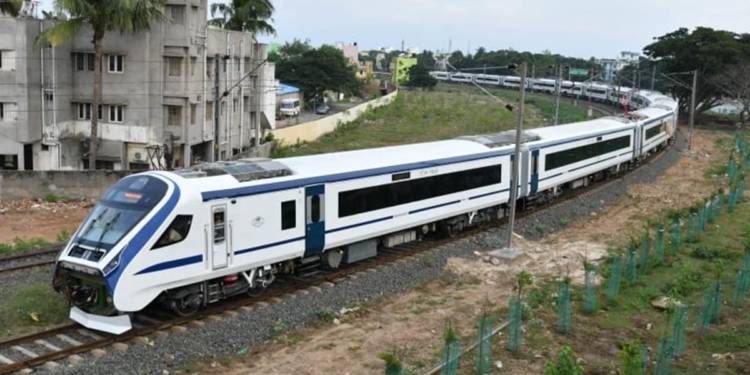A few days ago, Indian Railways, arguably the world’s largest carrier of freight and passengers, invited Request for Qualifications (RFQ) for private players to 151 trains on 109 routes. “This is the first initiative of private investment for running passenger trains over Indian Railways network,” said Railways.
The private players, from Tata to Adani, have lined up to bid for privatization of passenger trains operations. The bid for privatizations has also attracted many foreign players including Miami based Norwegian Cruise Line, which is the world’s third-largest cruise line operator in terms of the number of passengers.
In the pre-RFQ stage meeting, a total of 26 players participated. In addition to the companies interested in running private passenger trains, the manufactures and service providers like Bombardier Transportation, Alstom Transport, Siemens, Hyundai Rotem, Talgo, Hitachi India and South Asia, Medha Servo Drives, CRRC Zelc, and BEML have also participated.
The private trains would run between metros and other major cities and the Railways seeks private investment worth 30,000 crore rupees through the operations.
The motive behind private investment and privatization of passenger train operations is to introduce modern technology in the railways and reduce the travel time. “The objective of this initiative is to introduce modern technology rolling stock with reduced maintenance, reduced transit time, boost job creation, provide enhanced safety, provide world-class travel experience to passengers, and also reduce demand supply deficit in the passenger transportation sector,” said the ministry.
“There would be a substantial reduction in journey time. The running time taken by a train shall be comparable to or faster than the fastest train of Indian Railways operating in the respective route,” it added.
Indian Railways has a massive infrastructure to connect every corner of the country and it could be a very profitable business if run with private efficiency and corporate work ethics. Therefore, to cut the bureaucratic red tape and make the organization more efficient, privatization is a necessary step. The private players see long-term gains through investment in railways and want first move advantage. This is the reason behind biggest industrial houses of the country are lining up to bid private operations of the passenger trains.
The mammoth PSU is also planning massive decentralization where every function would be categorized under a separate entity and would work towards making profits and report to a chairman-cum-managing director. The Konkan Railway Corporation already operates ‘very efficiently’ as a separate organization with the state government being the holding entity. The two previous committees- Rakesh Mohan committee and Bibek Debroy committee- had both advised to create separate organizational units to attract large investments in the public sector behemoth.
The separation of freight and passenger operations would lead to greater financial efficiency. The freight operations of the railways are already efficient and are profit making operation but the passenger operation is the business where losses are incurred every year. The government plans to separate passenger operations and provide to travellers the option to voluntarily give up subsidy offered on low class travels. Under the Ujjwala Yojana, the Modi government ran the campaign, Give Up LPG Subsidy, and it was massive success with more than a crore people voluntarily opting out of the subsidy.
With Piyush Goyal at the helm of affairs, the Indian Railways has been able to push through a number of innovative moves. Several world class trains such as the Vande Bharat Express, Humsafar Express, Tejas Express, etc. have certainly put the Indian Railways in a different league altogether.
Last year, the Indian Railways achieved a major feat by recording zero casualties making 2019 the safest year for the Indian Railways in its history. With Piyush Goyal’s effective leadership, Modi government has been able to stage a massive turnaround as far as the national transporter is concerned.




















